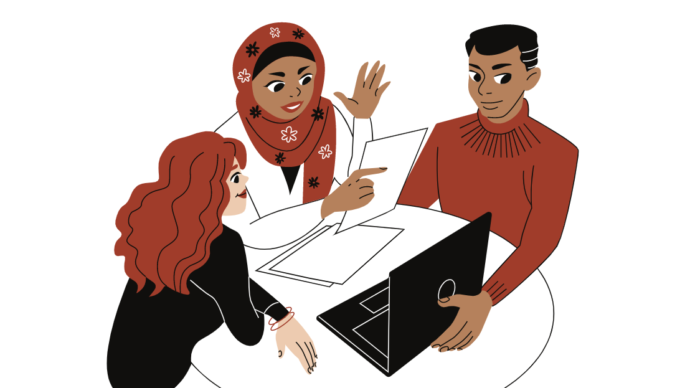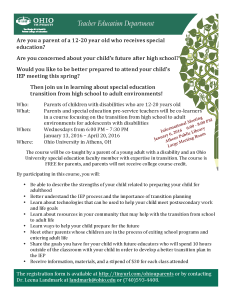Parent involvement has been linked to students with disabilities earning better grades, having higher reading levels, being involved in organized school and community groups, having a paid job, and having friends (Newman, 2004). Schools serving high percentages of disadvantaged children (i.e., low income students, migratory students, students with disabilities, English language learners, students at risk of dropping out) are required to have a written parent involvement policy co-authored by parents (No Child Left Behind Act, 2001). Furthermore, parent involvement is mandated when developing Individualized Family Service Plans and Individualized Education Plans for students receiving special education services (Individuals with Disabilities Education Improvement Act, 2004). Unfortunately, parents of children with disabilities are often passive recipients of information from special educators rather than partners (Childre & Chambers, 2005; Martin et al., 2006).
Recently, teacher educators in Ohio have created a parent-teacher partnership model in which parents of children with disabilities and teacher candidates participate in transformative learning activities as co-learners in a university course on collaboration (Curran & Murray, 2008; Murray & Curran, 2008; Murray, Curran, & Zellers, 2008). Ohio University (OU) has been awarded a grant to develop and implement a Partners in Transition project in which the parent-teacher partnership model will be infused in OU’s transition course (Career Development and Transition Planning for Learners with Special Needs). The course will allow parents and teacher candidates to learn side-by-side about the vertical and horizontal transitions children with disabilities experience and how to collaboratively improve post-school outcomes.

